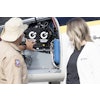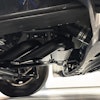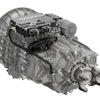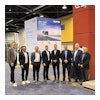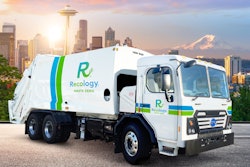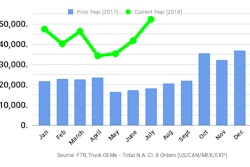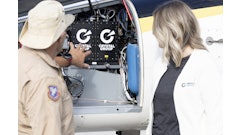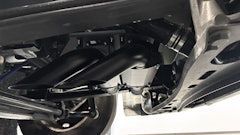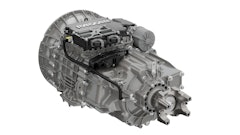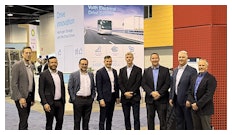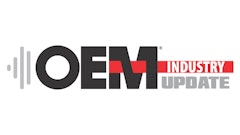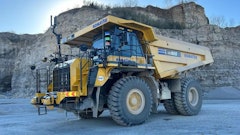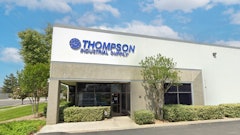NFI Group Inc., formerly New Flyer Industries Inc., the largest transit bus and motor coach manufacturer and parts distributor in North America, has announced its financial results for the 13-week period (2018 Q2) and 26-week period (2018 YTD) ended July 1, 2018. Year-over-year comparisons reported in this press release compare 2018 Q2 and 2018 YTD to the 13-week period (2017 Q2) and the 26-week period (2017 YTD) ended July 2, 2017. Unless otherwise indicated, all monetary amounts in this press release are expressed in U.S. dollars.
2018 Second Quarter Financial Results
Volume increased as a result of higher transit bus and motor coach deliveries and the inclusion of ARBOC cutaway deliveries. NFI acquired ARBOC Specialty Vehicles, LLC on December 1, 2017.
Revenue from manufacturing operations for 2018 Q2 increased by 10.6% compared to 2017 Q2. The increase primarily resulted from a 17.0% increase in new transit bus, coach and cutaway deliveries, as well as the inclusion of the revenue generated from third parties by the fiberglass reinforced polymer component operations. This increase was offset by a 5.7% decrease in new transit bus, coach and cutaway average selling price per EU in 2018 Q2 compared to 2017 Q2. Manufacturing operations revenue for 2018 Q2 of $574.6 million is $45.6 million higher when compared to pro forma manufacturing business revenue (which now includes ARBOC) for 2017 Q2. Similarly, revenue from manufacturing operations for 2018 YTD increased 5.8% compared to 2017 YTD. The increase in 2018 YTD revenue primarily relates to increased deliveries of 14.3% when compared to 2017 YTD offset by a decrease in new transit bus, coach and cutaway average selling price per EU in 2018 YTD of 8.0% when compared to 2017 YTD. Manufacturing business revenue for 2018 YTD of $1,053.2 million is $39.3 million higher when compared to pro forma manufacturing business revenue (which includes ARBOC) for 2017 YTD.
The decrease in average selling price is the result of normal volatility as well as changes in the product sales mix (which now includes ARBOC's units that have a substantially lower selling price than the average heavy-duty transit bus or motor coach).
Revenue from aftermarket operations in 2018 Q2 increased by 4.8% compared to 2017 Q2 and 2018 YTD increased by 4.4% compared to 2017 YTD. The 2018 Q2 deliveries press release issued on July 16, 2018 incorrectly stated that total shipments by NFI Parts increased by 4.8% compared to the previous quarter and increased by 1.1% compared to 2017 Q2. The release should have stated that total shipments decreased by 1.7% compared to the previous quarter and increased by 4.1% compared to 2017 Q2. The error in the press release had no impact on the reported financial results of the Aftermarket segment.
Net earnings during 2018 Q2 increased by $6.9 million compared to 2017 Q2. Net earnings per common share of NFI (Share) increased by $0.12, primarily as a result of increased earnings from operations and a decrease in income tax expense as a result of U.S. tax reform. Net earnings for 2018 YTD decreased when compared to 2017 YTD by $0.6 million primarily as a result of changes in non-recurring and/or non-operational transactions.
Management has now adopted an Adjusted Net Earnings and Adjusted Earnings per Share calculation to provide a measure of the company’s performance that is aligned with the company’s calculation of Adjusted EBITDA.
Adjusted Net Earnings during 2018 Q2 increased by $8.9 million compared to 2017 Q2 resulting in an increase in Adjusted Earnings per Share in 2018 Q2 of $0.15, primarily as a result of increased earnings from operations and a decrease in income tax expense as a result of U.S. tax reform. Similarly Adjusted Net Earnings for 2018 YTD increased by $9.0 million when compared to 2017 YTD.
Management believes that Return on Invested Capital (ROIC) is an important metric that can be used to assess investments against their related earnings and capital utilization. ROIC during the last 12 months ended July 1, 2018 was 15.5% as compared to 14.9% during the last 12 months ended July 2, 2017 improving primarily as a result of a decreased effective tax rate, as well as improved net operating profits.
Organizational changes to better align business functions within operating segments were made effective January 2, 2017 and implemented in two phases. In 2017, over-the-counter parts sales were moved from the manufacturing operations to aftermarket operations. In 2018 the MCI service function, comprised of technical service management and customer training, which was previously managed by the MCI aftermarket operations, was moved to the coach manufacturing operations. To improve the comparability between periods, the related prior year segment information has been restated to reflect these changes.
Consolidated Adjusted EBITDA for 2018 Q2 increased by 7.4% compared to 2017 Q2 and for 2018 YTD increased by 5.6% compared to 2017 YTD.
The 2018 Q2 and 2018 YTD manufacturing Adjusted EBITDA increased 11.9% and 11.7% compared to 2017 corresponding periods, primarily as a result of increased deliveries, improved margins and the inclusion of ARBOC's operations. Contributors to the increase in margin included a favorable sales mix and continued cost reductions achieved through the company's operational excellence initiatives. The manufacturing business Adjusted EBITDA per EU for 2018 Q2 was $62.3,000 which is $2,800 lower per EU compared to 2017 Q2, but is $600 higher per EU when compared to pro forma 2017 Q2 (which includes ARBOC). The manufacturing business Adjusted EBITDA per EU for 2018 YTD was $58.7 thousand which is $1,300 lower per EU compared to 2017 YTD but is $1,700 higher per EU compared to pro forma 2017 YTD (which includes ARBOC).
Margins vary significantly due to factors such as pricing, order size, propulsion system, product type and options specified by the customer. Management cautions readers that quarterly Adjusted EBITDA and Adjusted EBITDA per EU can be volatile and should be considered over a period of several quarters.
The 2018 Q2 and 2018 YTD aftermarket operations Adjusted EBITDA decreased by 6.8% and 10.1%, respectively, compared to 2017 corresponding periods primarily due to sales mix and costs involved in integrating the New Flyer and MCI parts business. Aftermarket sales and margins remain difficult to forecast due to a significant portion of the business being transactional in nature, and as a result experiences significant quarterly volatility.
Liquidity
Free cash flow in 2018 Q2 increased 17.2% when compared to 2017 Q2 primarily due to increased Adjusted EBITDA. The amount of dividends declared increased by 15.7% in 2018 Q2 as a result of the increase in the annual dividend rate from C$1.30 to C$1.50 per Share effective for dividends declared after May 9, 2018 and additional Shares issued as a result of conversion of NFI's previously outstanding convertible debentures.
On June 11, 2018, the company announced that the Toronto Stock Exchange (TSX) had accepted a notice filed by the company of its intention to implement the normal course issuer bid (NCIB). Purchases under the NCIB can be made through the facilities of the TSX and any alternative Canadian trading systems on which the Shares are traded. Pursuant to the NCIB, the company is permitted to repurchase for cancellation up to 2,774,733 Shares, representing approximately 5% of the outstanding public float of Shares on June 4, 2018, to commence on June 14, 2018 until June 13, 2019, or earlier should the company complete its repurchases prior to such date. During 2018 Q2, the company repurchased 283,800 Shares (of which 67,400 Shares were settled and canceled after July 1, 2018) at an average price of C$49.07 per Share for a total repurchase cost of $8.2 million during 2018 Q2 and $2.5 million settled after July 1, 2018.
The company's total leverage ratio (defined as net indebtedness divided by Adjusted EBITDA) of 1.89 at July 1, 2018 decreased from the ratio of 1.90 at April 1, 2018. The company is well within compliance with its banking covenant that requires the total leverage ratio to be less than 3.50.
Outlook
The company’s annual operating plan for the 52-weeks ending December 30, 2018 (Fiscal 2018) is focused on maintaining and growing its leading market position in the heavy-duty transit bus, motor coach and low-floor cutaway markets and aftermarket parts distribution through enhanced competitiveness.
Management continues to expect bus procurement activity by public transit agencies throughout the U.S. and Canada to remain robust based on an aging fleet, availability of funding provided through the multi-year U.S. federal funding program "Fast Act", healthy overall economic conditions, expected customer fleet replacement plans and active or anticipated procurements. Management continues to anticipate stable private sector demand for motor coaches through 2018. While some traditional fixed route and line haul operators have seen increased competitive headwinds from reduced demand and increased competition, including new e-commerce entrants, management believes MCI remains well positioned.
The company has successfully complied with Buy America conditions of U.S. public customers who require 65% U.S. material content in 2018 and has plans in place to achieve the 70% target by October 2019.
The company’s master production schedule combined with current backlog and orders anticipated to be awarded by customers under new procurements is expected to enable the company to deliver approximately 4,350 EUs during Fiscal 2018. Production rates are adjusted and can vary from quarter to quarter due to product mix and contract award timing. The company reaffirms its 2018 delivery guidance which is expected to be comprised of the following vehicle types:
- Cutaway and Medium-Duty = 2,774 EU
- Heavy Duty Transit = 1,076 EU
- Motor Coach = 500 EU
- Total = 4,350 EU
With a current healthy production schedule, low leverage, and solid liquidity, management continues to be focused on property, plant and equipment (PPE) investment and estimates PPE expenditures for Fiscal 2018 to be in the range of approximately $63 million to $73 million. Spending relates to equipment maintenance as well as growth projects which management expects to generate margin enhancements consistent with its targets.
The aftermarket leadership team has developed a business strategy that is expected to address the needs of the entire diverse customer base. This new integrated organization is branded as "NFI Parts", which will maintain primary focus on supporting the original equipment manufacturer (OEM) businesses of the company, while also targeting new market opportunities. During the planning and execution of the integration of the New Flyer and MCI parts businesses expenses are anticipated to remain flat. After the completion of the integration management expects cost reductions to lower the operating expenses of the aftermarket parts organization, with savings anticipated later in 2018 and 2019.
Although part sales remain difficult to forecast, management expects the parts market to remain relatively stable in Fiscal 2018, with quarter-to-quarter volatility typical for this segment of the business.
Commodity Price Increases, Tariffs and Surtaxes
The company uses aluminum, carbon steel and stainless steel in the manufacture of bus and coach frames. However, these raw materials, before processing, comprise less than 3% of total material costs. Management currently anticipates an immaterial impact for the remainder of 2018 from current market increases in aluminum and steel pricing as major components are purchased under fixed price or contract specific quotations. Management expects that any future component cost increases should be substantially recoverable through new contract pricing or through the producer price index (PPI) mechanisms in multiyear contracts.
On June 1, 2018 the U.S. federal government imposed tariffs on Canadian steel and aluminum imported into the U.S. In response the Government of Canada imposed certain surtaxes on U.S. steel and aluminum imported into Canada after July 1, 2018. The majority of the aluminum and steel used at the company's manufacturing facilities is from U.S. sources, largely in support of the Buy America requirements of U.S. public customers. Canadian surtaxes paid on the importation of U.S. aluminum and steel used in manufacturing products at the company's Canadian plants that are then re-exported to the U.S. are eligible for full recovery under the current Canadian federal Duty Relief and Duty Drawback Programs.
New Flyer Leadership Transition
After 10 years with the company and more than 40 years as an executive in bus and heavy equipment industries, New Flyer President Wayne Joseph announced his retirement effective Jan 1, 2019. Joseph actively led the transformation of New Flyer with a company-wide LEAN implementation, grew the business with the successful Xcelsior model launches followed by the integrations of NABI and ARBOC, and the launch of the Vehicle Innovation Centre.
Chris Stoddart, New Flyer’s Senior Vice President of Engineering and Customer Service, has been selected to succeed Joseph as the business unit President. Chris joined New Flyer in 2007 and is currently responsible for New Product Development, Production Engineering, Product Lifecycle Management and Customer Service. Prior to joining New Flyer, Stoddart worked for National Steel Car as VP Engineering Services for 9 years and held numerous leadership roles in Production Supervision and Process Engineering at General Motors. Stoddart holds a Bachelor of Science in Engineering from Kettering University and in 2017 graduated from the Advanced Management Program at Harvard Business School.
Joseph will work closely with Stoddart during the leadership transition and will remain connected with the company in an advisory capacity to support growth and operational excellence initiatives.
